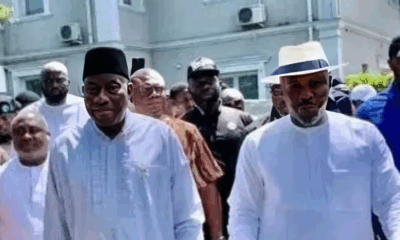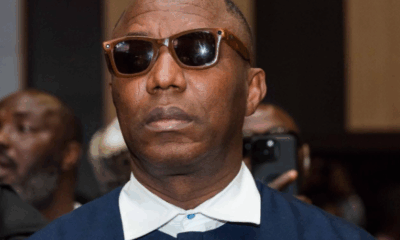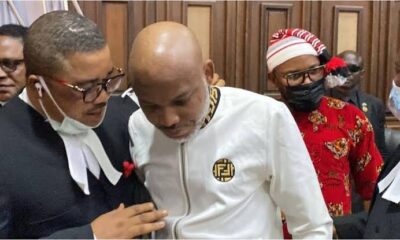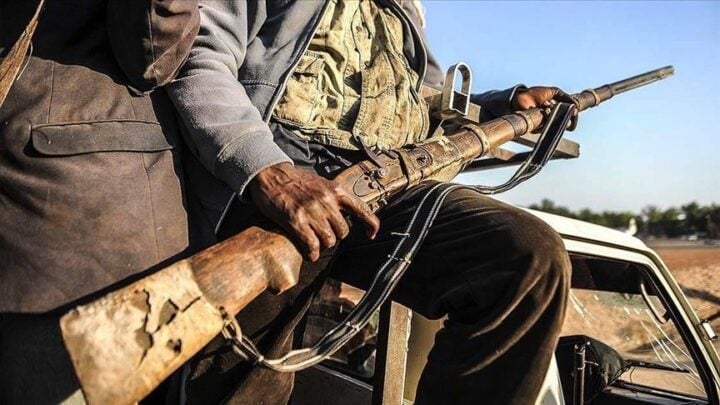The Indigenous People of Biafra (IPOB) has responded to the “IgboMustGo” campaign in the South-West region, calling for a referendum to allow the Igbo people to decide their future.
The group expressed concern that authorities in the South-West have not taken a stronger stance against the campaign and its supporters.
IPOB suggests that high-ranking individuals within the Lagos State and Federal Governments may be backing the campaign, and is urging caution to those in the South-West.
This statement was released by Emma Powerful, IPOB’s Director of Media and Publicity, on Monday.
The statement read, “Following the provocative and genocidal “IgboMustGo” proposed protest slated to commence from August 20-30th 2024, by some faceless Yoruba groups and persons, the Indigenous People of Biafra (IPOB) wish to remind the Yoruba anti-Igbo groups that Ndigbo are ready to exit Yoruba land and Nigeria via a referendum. Ndigbo will not succumb to any threat from any group or persons to leave any state or region in Nigeria.
“It is laughable that the Governor of Lagos State, Mr. Babajide Sanwo-Olu, was reported to have hypnotically condemned the proponents of the “Igbo Must Go” protest.
The Governor will not hoodwink Ndigbo with his hypocritical condemnation of those calling for Igbos’ expulsion from the South West Region of Nigeria. The governor was the first to ethnically profile Ndigbo with his biased demolition of Ndigbo’s businesses, properties, and investments in Lagos State. There is a high chance that the proponents of the “IgboMustGo” are sponsored by high-profile persons in the Lagos State Government and the Federal Government.
“Nevertheless, Ndigbo are not perturbed. We have seen it all in Nigeria and are prepared for any opportunity to exit Nigeria at any time.
“But it will be more appropriate for us to be allowed to exit Nigeria peacefully and democratically in order to maintain good neighbourly relationships. However, if Ndigbo is forced to exit Nigeria violently, there’s a possibility that we shall remain hostile neighbors for the foreseeable future.
“The Yoruba tribal bigots and their sponsors must understand that Ndigbo is not moved by threat. We have made up our minds to exit Nigeria, so there is no basis for the threat of violence or genocide agenda tagged “IgboMustGo” protest.
“Instead of threatening to unconstitutionally and violently force Ndigbo out of the Yoruba region, they should tell President Tinubu, their brother, to release Mazi Nnamdi Kanu and to organise a referendum for Ndigbo to decide between Biafra and Nigeria. We will gladly vote and leave Nigeria and the Yoruba region in peace. We are demanding this so they can have peace after we are gone. Ndigbo is more enthusiastic about exiting Nigeria than it was in the 1960s.
“The ongoing “EndBadGovernance” protest in Nigeria was organized by Yoruba and Fulani to lure Ndigbo into destruction, but Ndigbo has learned their lessons. Though, Ndigbo declined to participate in the ongoing protests, yet they are being attacked and accused of being behind the protest. One can imagine what would have become of Ndigbo in the Northern and Western Regions if they had taken part in the ongoing protest. Ndigbo has always been a victim of every protest in Nigeria.
“Though Ndigbo is facing the same economic hardship that Tinubu’s government has imposed on Nigerians, however, to avoid being targeted as always, they decided to shun the protest. The scenario that led to the genocidal war against Biafrans in 1967-1970 is rearing its ugly head. Ndigbo is not only facing existential threats from the Western region but also from the Northern regions.
“We are calling Ndigbo in the North and West to think home as fast as possible. No amount of threat will make IPOB retreat from our divine mandate of restoring Biafra.
“We are calling the attention of the international community to the existential threat against Ndigbo in Nigeria. The Human Right Organisations, United Nations (UN), European Union (EU), African Union (AU), all the lovers of freedom should understand that Biafrans are endangered species in the contraption called Nigeria. The ethnic profiling and hatred against Ndigbo are glaring in the areas of security, politics, and economics in Nigeria.”
It added, “Silencing the quest for Biafra referendum is indirectly supporting genocide against Ndigbo and Biafrans. Just like our forebears and our heroes defended the Biafra people and land, the present generation of Biafrans have decided to remove our territory from Nigeria and defend the genocidal war spearheaded by Britain in 1967. This generation of Biafrans is determined to defend ourselves from those who want to annihilate us. We are not interested in the calls for the arrest of the “IgboMustGo” criminal elements because we know that nothing will happen to them.
“They are just the attack dogs of the big masquerades in Yoruba land, led by the State and Federal Government. We advise them to channel their energy in convincing President Tinubu to release Mazi Nnamdi Kanu and schedule a date for Biafra Referendum. Threatening Ndigbo to leave Yoruba land is a sign of weakness and cowardice. Ndigbo are ready to exit Yoruba land and Nigeria just like yesterday.”
Recall that Lagos State Governor Babajide Sanwo-Olu condemned the call for Igbo people to vacate Lagos and Southwest in entirety.
Sanwo-Olu remarked in a statement through his Special Adviser on Media and Publicity, Mr. Gboyega Akosile.
The governor said, “The attention of Lagos State Governor, Mr Babajide Sanwo-Olu, has been drawn to a post by LagosPedia, a social media handle on X (formerly Twitter) that calls on the Igbo to vacate Lagos and Southwest of Nigeria and brace up for a massive hashtag IgboMustGo protest from August 20-30, 2024.

 BIG STORY4 days ago
BIG STORY4 days ago
 BIG STORY4 days ago
BIG STORY4 days ago
 BIG STORY5 days ago
BIG STORY5 days ago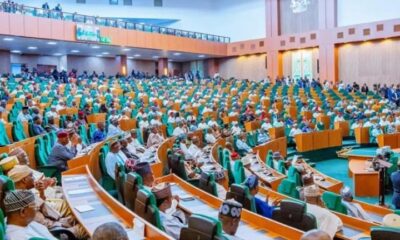
 BIG STORY2 days ago
BIG STORY2 days ago
 BIG STORY3 days ago
BIG STORY3 days ago
 BIG STORY23 hours ago
BIG STORY23 hours ago
 BIG STORY3 days ago
BIG STORY3 days ago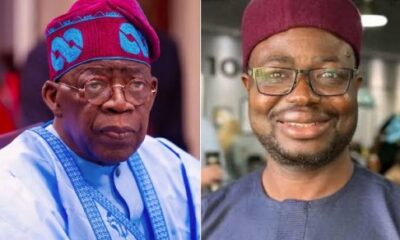
 BIG STORY4 days ago
BIG STORY4 days ago











